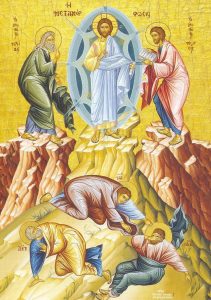 “Then Moses said, “Please let me see your glory!” The Lord answered: I will make all my goodness pass before you, and I will proclaim my name, “Lord,” before you; I who show favor to whom I will, I who grant mercy to whom I will. (Exodus 33:18-19)”
“Then Moses said, “Please let me see your glory!” The Lord answered: I will make all my goodness pass before you, and I will proclaim my name, “Lord,” before you; I who show favor to whom I will, I who grant mercy to whom I will. (Exodus 33:18-19)”
“But the Lord was not in the fire; after the fire, a light silent sound. When he heard this, Elijah hid his face in his cloak and went out and stood at the entrance of the cave. (1 Kings 19:12-13)”
“After six days Jesus took Peter, James, and John his brother, and led them up a high mountain by themselves. And he was transfigured before them; his face shone like the sun and his clothes became white as light. And behold, Moses and Elijah appeared to them, conversing with him. Then Peter said to Jesus in reply, ‘Lord, it is good that we are here. If you wish, I will make three tents here, one for you, one for Moses, and one for Elijah.’ While he was still speaking, behold, a bright cloud cast a shadow over them, then from the cloud came a voice that said, ‘This is my beloved Son, with whom I am well pleased; listen to him.’ (Matthew 17:1-2.5)”
In the Creed we profess at every Liturgy, we proclaim, “I believe … in one Lord Jesus Christ, Son of God, the only-begotten, born of the Father before all ages. Light from light, true God from true God, begotten, not made, one in essence with the Father.” In the gospels there is no clearer revelation of Jesus as Son of God than in his transfiguration on Mt. Tabor. Moses who was unable to see the face of God on Mt. Sinai and Elijah, who was in God’s presence as “a light silent sound” today see the face of God in Jesus, His only-begotten Son. Of course, the truth was that we did not see the divine nature, but we beheld the glory of God “as much as we could bear,” (Kontakion of Transfiguration). Even in death we cannot comprehend the essence of God as he is in himself, for to do that we would have to be God. Yet today we see that we can be united in God, just as God has taken on himself the human nature. This is revealed in 2 Peter 1:3-4 and 17-18: His divine power has bestowed on us everything that makes for life and devotion, through the knowledge of him who called us by his own glory and power. Through these, he has bestowed on us the precious and very great promises, so that through them you may come to share in the divine nature, after escaping from the corruption that is in the world because of evil desire …. For he received honor and glory from God the Father when that unique declaration came to him from the majestic glory, “This is my Son, my beloved, with whom I am well pleased.” We ourselves heard this voice come from heaven while we were with him on the holy mountain.” This is our hope of deification, as we sing, “Showing the change that mortals will undergo, O Lord, when they enter your glory at your second and awesome coming, you were transfigured on Mount Tabor. (Session Hymn 1, Transfiguration Matins)”
The light of the Transfiguration has become a very important part of Byzantine spirituality, it is real, and a way we become united with God. Our holy Father Seraphim of Sarov had a conversation with Nicholas Motovilov, in the midst of which this happened: “Then Father Seraphim took me very firmly by the shoulders and said: ‘We are both in the Spirit of God now, my son. Why don’t you look at me?’ I replied: ‘I cannot look, Father, because your eyes are flashing like lightning. Your face has become brighter than the sun, and my eyes ache with pain.’ Father Seraphim said: ‘Don’t be alarmed, your Godliness! Now you yourself have become as bright as I am. You are now in the fullness of the Spirit of God yourself; otherwise you would not be able to see me as I am.’”
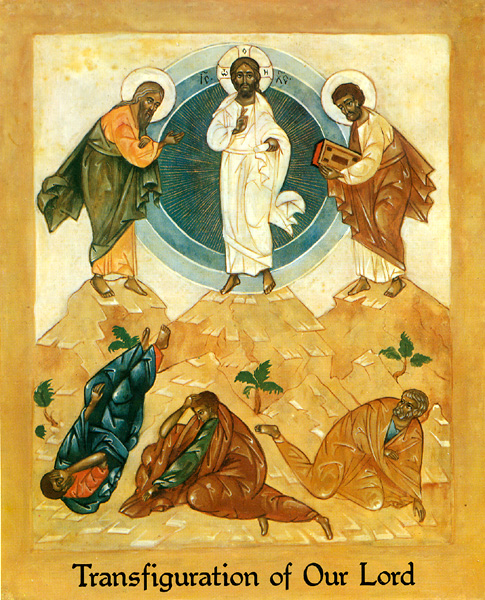
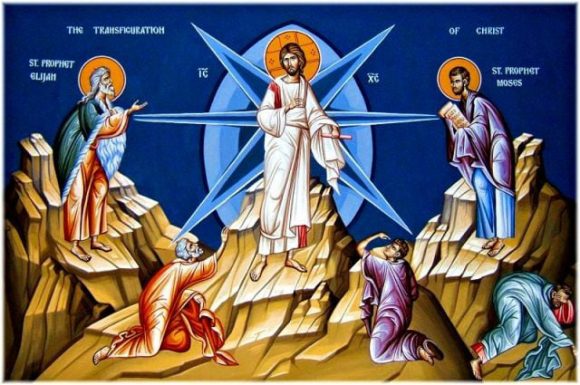
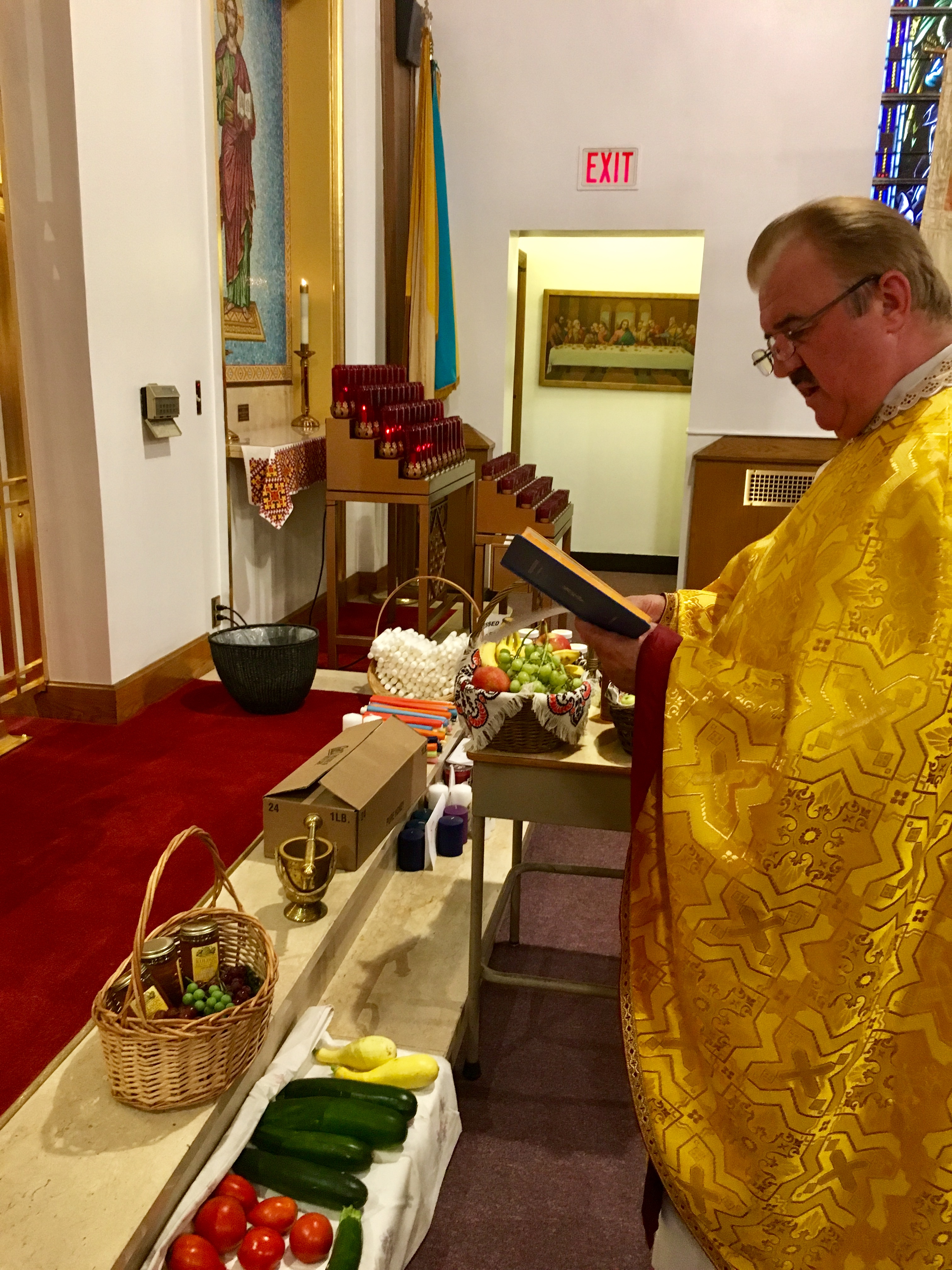 At the conclusion of the Divine Liturgy for the feast of the Transfiguration of the Lord, Father Iura blessed grapes, harvested fruits and vegetables and honey.
At the conclusion of the Divine Liturgy for the feast of the Transfiguration of the Lord, Father Iura blessed grapes, harvested fruits and vegetables and honey.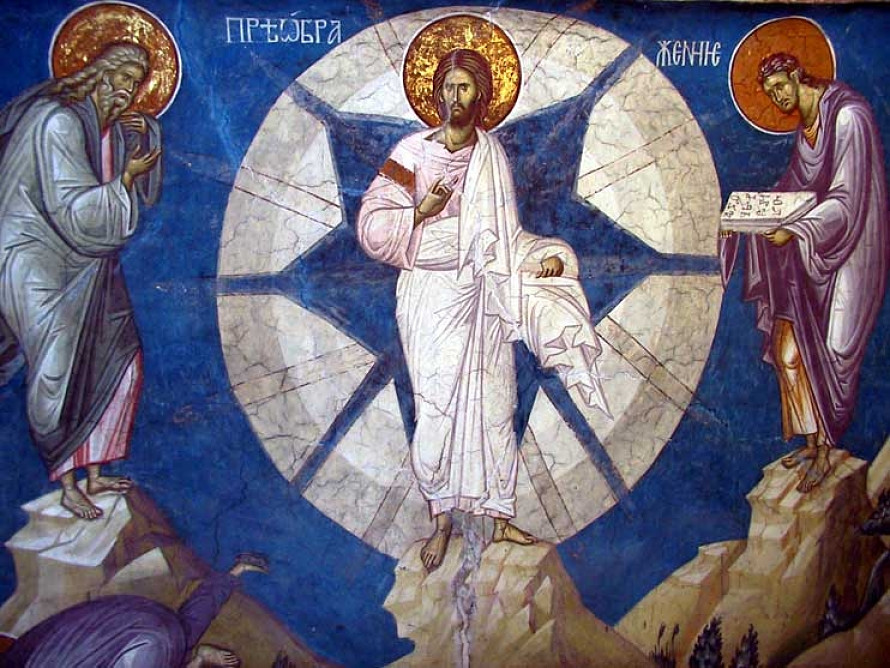 Divine Liturgy for the
Divine Liturgy for the “Then Moses said, “Please let me see your glory!” The Lord answered: I will make all my goodness pass before you, and I will proclaim my name, “Lord,” before you; I who show favor to whom I will, I who grant mercy to whom I will. (Exodus 33:18-19)”
“Then Moses said, “Please let me see your glory!” The Lord answered: I will make all my goodness pass before you, and I will proclaim my name, “Lord,” before you; I who show favor to whom I will, I who grant mercy to whom I will. (Exodus 33:18-19)”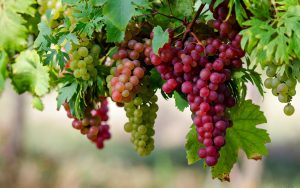 At both of the Divine Liturgies (9:00 a.m. and 7:00 p.m. in English) Father Iura will bless grapes and other fruit for the Feast of the Transfiguration,
At both of the Divine Liturgies (9:00 a.m. and 7:00 p.m. in English) Father Iura will bless grapes and other fruit for the Feast of the Transfiguration, 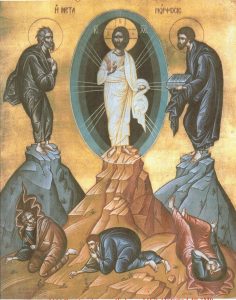 The Transfiguration of Our Lord, as testified to in Divine Revelation shows us our ultimate destiny as Christians: the ultimate destiny of all men and all creation to be transformed and glorified by the splendor of God Himself.
The Transfiguration of Our Lord, as testified to in Divine Revelation shows us our ultimate destiny as Christians: the ultimate destiny of all men and all creation to be transformed and glorified by the splendor of God Himself.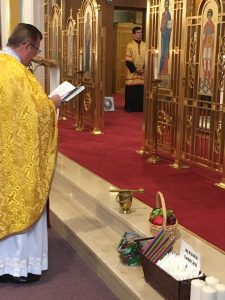 As the Apostles recognized, “it is good for us to be here”.
As the Apostles recognized, “it is good for us to be here”.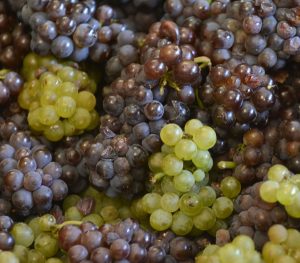 At both of the Divine Liturgies (9 and 10:30am) Father Iura will bless grapes and other fruit on Transfiguration Sunday, August 6.
At both of the Divine Liturgies (9 and 10:30am) Father Iura will bless grapes and other fruit on Transfiguration Sunday, August 6.